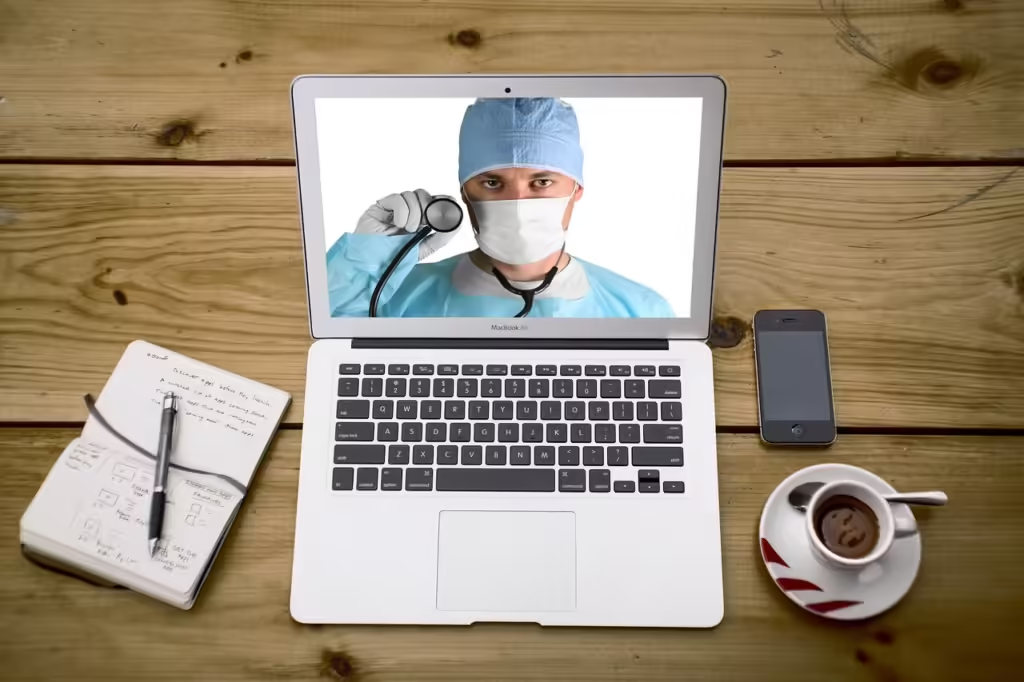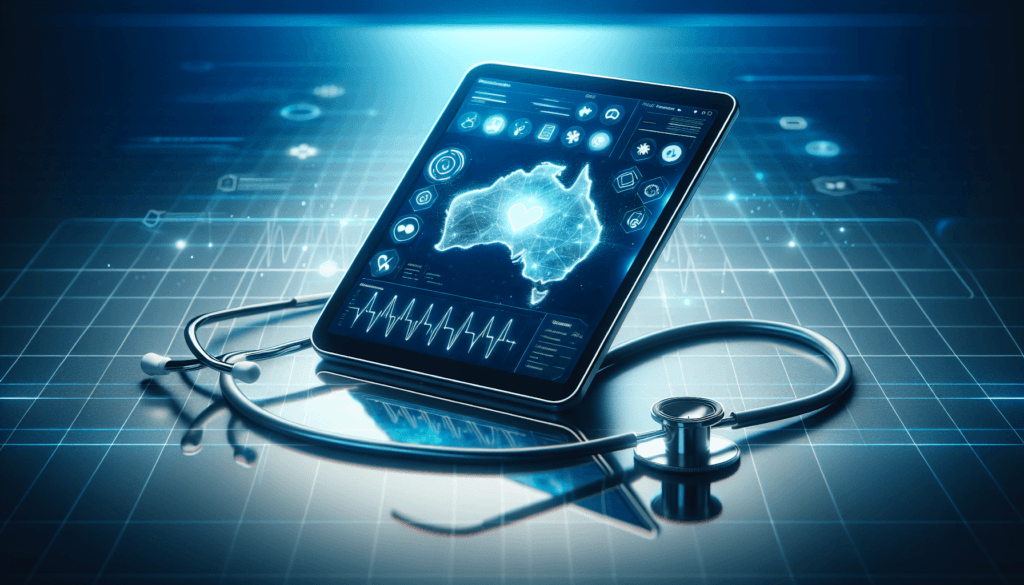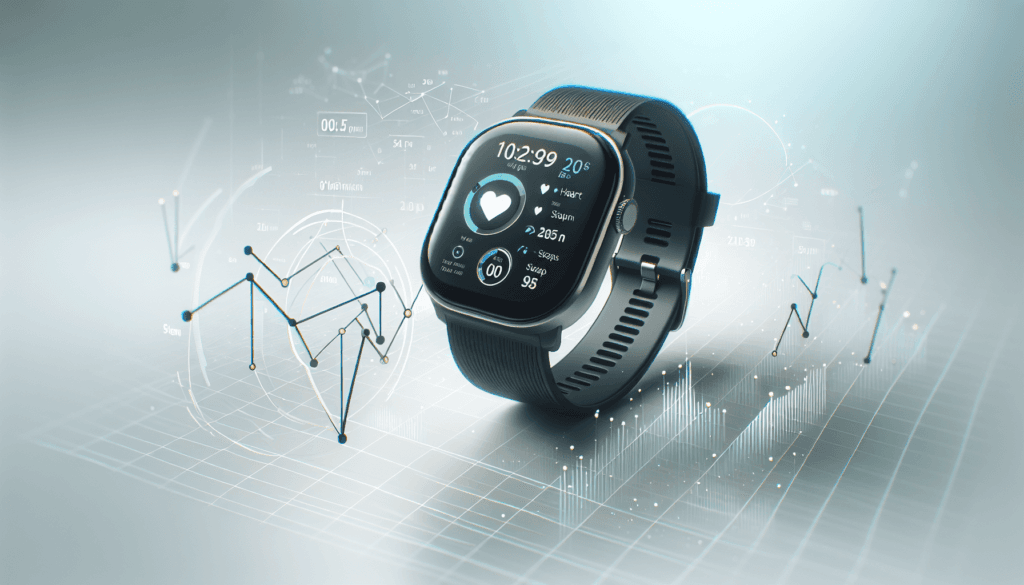The Benefits Of Integrating IoT In Personal Health Regimens. The evolution of technology has significantly permeated various facets of our daily lives, and one of the most promising advancements is the integration of the Internet of Things (IoT) into personal health regimens. This article explores how IoT-enabled devices and applications can transform healthcare by providing real-time monitoring, personalized treatment plans, and enhanced patient engagement. By delving into the historical context of IoT in healthcare, examining current trends and practical examples, and assessing the potential future implications, you will gain a comprehensive understanding of the profound benefits that IoT can offer for optimizing your health and well-being.
Whether through wearable fitness trackers, smart medical devices, or advanced health data analytics, embracing IoT in your personal health regimen can lead to more proactive and informed healthcare decisions. Have you ever wondered how integrating the latest technological advancements into your personal health regimen could radically transform your well-being? The rise of the Internet of Things (IoT) has created new possibilities in various sectors, including personal health and wellness. You’re about to discover myriad benefits that IoT can bring to your daily health maintenance.

This image is property of images.pexels.com.
Table of Contents
Overview
With IoT technology continually evolving, you might find it challenging to grasp its full potential and relevance. IoT’s capacity to collect, analyze, and act on data offers great opportunities to improve personal health regimens. The relevance of this technological advance becomes even more apparent in the current health-conscious world. People are increasingly seeking customized and efficient ways to monitor and maintain their health, and IoT provides the perfect solution.
Thesis Statement
Integrating IoT in personal health regimens can offer significant benefits, from enhanced data collection and real-time monitoring to personalized healthcare solutions and preventative care. By understanding the historical context, current trends, and future implications, you’ll better appreciate why this integration is not just convenient but essential.
Historical Context
The concept of IoT has roots that date back to the early 1980s when the first internet-connected device, a Coke machine at Carnegie Mellon University, was developed. However, the term “Internet of Things” was coined by Kevin Ashton in 1999 during his work at Procter & Gamble. Fast forward to the 21st century, and IoT began breaking into the healthcare sector, offering numerous applications, from remote patient monitoring to smart medical devices.
In its initial phase, IoT in healthcare was primarily focused on clinical environments, helping medical practitioners track patient data, and manage resources more efficiently. The trend has since shifted towards personal health, making it possible for individuals to take control of their well-being.
Current Trends
Today, IoT devices have become an integral part of daily life. Fitness trackers, smartwatches, and even IoT-enabled home gym equipment are some of the most popular examples. These devices collect data such as heart rate, steps taken, and calories burned, providing real-time feedback that helps you better understand your body’s performance and needs.
Several startups and established tech companies are now leveraging IoT technology to develop personalized health solutions. Devices are getting smarter and more intuitive, focusing on providing tailored health insights. For instance, certain smartwatches can now detect irregular heart rhythms and alert users to seek medical advice.
Examples of Popular IoT Health Devices
| Device Type | Examples | Key Features |
|---|---|---|
| Fitness Trackers | Fitbit, Garmin | Step counting, sleep monitoring, HR tracking |
| Smartwatches | Apple Watch, Samsung Galaxy | ECG monitoring, fitness tracking, notifications |
| Smart Home Gyms | Peloton, Mirror | Virtual training, interactive courses |
In addition to wearable devices, IoT applications have expanded to include telemedicine, remote monitoring, and even smart medications that remind you to take your pills. These applications aim to make healthcare more accessible and user-friendly.

This image is property of images.pexels.com.
Key Concepts and Definitions
To fully appreciate the impact of IoT on personal health regimens, it’s crucial to define some key terms:
Internet of Things (IoT): A network of interconnected devices that collect and exchange data.
Real-time Monitoring: The ability to continuously track specific parameters such as heart rate, blood pressure, and glucose levels.
Telemedicine: The remote diagnosis and treatment of patients via telecommunications technology.
Smart Medical Devices: IoT-enabled devices that collect health data and can make autonomous decisions based on predefined criteria.
These definitions form the foundation for understanding how IoT can enhance your health routines.
Detailed Analysis
Enhanced Data Collection and Analysis
One of the significant benefits of IoT in personal health is the ability to collect and analyze vast amounts of data. Wearable devices like fitness trackers and smartwatches constantly gather information about your physical activities, sleep patterns, and vital signs. By aggregating this data, these devices offer valuable insights into your lifestyle habits, enabling you to make more informed decisions about your health.
Consider the case study of John, a 45-year-old software engineer who started using an IoT-enabled fitness tracker. John noticed that his heart rate elevated significantly during routine activities. This insight prompted him to visit a cardiologist, who diagnosed him with a minor but treatable heart condition. Without the data provided by his fitness tracker, John might have ignored these subtle symptoms, potentially leading to more severe health issues.
Personalized Healthcare Solutions
IoT technologies enable personalized healthcare solutions tailored to your specific needs. These solutions range from customized workout plans to dietary recommendations based on your unique health data. Smart devices can also integrate with various health apps, offering a comprehensive view of your health metrics.
For example, Sarah, a fitness enthusiast, uses a smart gym that adjusts resistance based on her performance data, ensuring she gets the most effective workout without the risk of overexertion. The gym’s IoT system continuously updates her progress and provides personalized recommendations, making her fitness journey both effective and enjoyable.
Preventative Healthcare
IoT plays a crucial role in preventative healthcare by identifying potential health issues before they become critical. Devices can monitor physiological parameters and detect anomalies, providing early warnings that prompt timely medical interventions.
Take the example of an elderly person living alone. IoT-enabled home health monitoring systems can track their vital signs and activity levels, sending alerts to family members or healthcare providers if anything seems amiss. This real-time monitoring significantly reduces the risk of unnoticed health crises, promoting a safer living environment for the elderly.
Real-time Monitoring
Real-time monitoring allows for immediate feedback and adjustments, which is particularly beneficial for individuals managing chronic conditions. For instance, diabetics can use continuous glucose monitors (CGMs) to track their blood sugar levels in real time, allowing for prompt adjustments to diet, exercise, or medication. Such immediacy in monitoring can drastically improve the quality of life and health outcomes for individuals with chronic conditions.

This image is property of images.pexels.com.
Comparison of Different Points of View
While the benefits of integrating IoT in personal health regimens are compelling, it’s essential to examine different perspectives to provide a balanced view.
Advantages
| Benefit | Description |
|---|---|
| Data-Driven Insights | IoT provides detailed, real-time data that can inform health decisions. |
| Convenient Monitoring | Continuous monitoring without the need for frequent doctor visits. |
| Personalized Solutions | Tailored health plans based on individual data and needs. |
Challenges
| Challenge | Description |
|---|---|
| Data Privacy | Concerns about the security of personal health data. |
| Technological Barriers | Issues related to device compatibility and user-friendliness. |
| Cost | High initial investment and maintenance costs for IoT devices. |
Impact Assessment
The impact of IoT on personal health regimens is profound, but it comes with its set of challenges. While real-time data collection and personalized insights significantly improve health outcomes, the concerns around data privacy and security cannot be ignored. Ensuring robust cybersecurity measures and developing user-friendly devices are crucial steps toward maximizing the benefits of IoT in personal health.
Future Directions and Implications
Predictions
Looking ahead, the integration of IoT in personal health regimens is expected to become even more sophisticated and widespread. Future advancements may include more intuitive AI-driven health assistants that can predict health issues based on data trends and offer preventative measures. We may also see an increase in the adoption of IoT in mental health, with devices that monitor stress levels and provide real-time relaxation techniques.
Implications
The broader implications of these advancements are enormous. As IoT becomes more ingrained in personal health, the overall healthcare system may experience shifts towards more preventative care models, reducing the burden on healthcare providers and lowering healthcare costs. These changes also have the potential to democratize healthcare, making it more accessible to a broader population.
For instance, rural areas with limited healthcare facilities can benefit significantly from IoT-enabled telemedicine and remote health monitoring, ensuring that residents receive timely and appropriate care without the need for extensive travel.

Conclusion
Summarize
To summarize the discussion, the integration of IoT in personal health regimens offers substantial benefits that can revolutionize how you approach health and wellness. From enhanced data collection and personalized healthcare solutions to preventative care and real-time monitoring, IoT provides comprehensive support for a healthier lifestyle. The advantages are clear, though challenges like data privacy and technological barriers need addressing to fully realize these benefits.
Final Thoughts
As we move into an increasingly interconnected world, it’s crucial to embrace these technological advancements to optimize personal health. What do you think? Could embracing IoT technology be the key to unlocking a healthier and more informed lifestyle? Engage with this opportunity and explore how IoT can make a significant difference in your life.
Invite Engagement
If you found this article insightful, be sure to explore other resources on our blog for more information on the cutting-edge technologies shaping personal health regimens. Stay tuned for more in-depth articles and updates on the latest trends in health and wellness.
Credible Sources
- Ashton, K. (2009). That ‘internet of things’ thing. RFID Journal.
- Riggins, F. J., & Wamba, S. F. (2015). Research Directions on the Adoption, Usage, and Impact of the Internet of Things through the Use of Big Data Analytics. Proceedings of the 48th Hawaii International Conference on System Sciences.
- Mishev, A. (2017). The Role of Internet of Things in Preventative Healthcare. Healthcare Technology Letters.
By exploring these sources, you’ll gain a deeper understanding of how IoT is poised to transform personal health and well-being.
The Internet of Medical Things: Benefits of IoT in Healthcare

